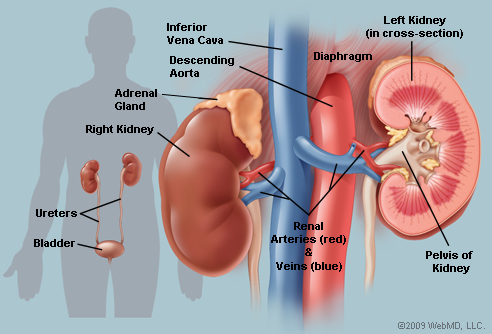Renal Failure in India
What is Renal Failure ?
Renal failure, also known as kidney failure or renal insufficiency, is a medical condition in which the kidneys fail to adequately filter waste products from the blood.The two main forms are acute kidney injury, which is often reversible with adequate treatment, and chronic kidney disease, which is often not reversible. In both cases, there is usually an underlying cause.
Kidney failure is mainly determined by a decrease in glomerular filtration rate, the rate at which blood is filtered in the glomeruli of the kidney. This is detected by a decrease in or absence of urine production or determination of waste products (creatinine or urea) in the blood. Depending on the cause, hematuria (blood loss in the urine) and proteinuria (protein loss in the urine) may be noted.
Classification
Kidney failure can be divided into two categories: acute kidney injury or chronic kidney disease. The type of renal failure is differentiated by the trend in the serum creatinine; other factors that may help differentiate acute kidney injury from chronic kidney disease include anemia and the kidney size on sonography as chronic kidney disease generally leads to anemia and small kidney size.
Causes
Acute kidney injury (previously known as acute renal failure) - or AKI - usually occurs when the blood supply to the kidneys is suddenly interrupted or when the kidneys become overloaded with toxins. Causes of acute kidney injury include accidents, injuries, or complications from surgeries in which the kidneys are deprived of normal blood flow for extended periods of time. Heart-bypass surgery is an example of one such procedure.
Renal Failure

Signs and symptoms
Symptoms can vary from person to person. Someone in early stage kidney disease may not feel sick or notice symptoms as they occur. When kidneys fail to filter properly, waste accumulates in the blood and the body, a condition called azotemia. Very low levels of azotaemia may produce few, if any, symptoms. If the disease progresses, symptoms become noticeable (if the failure is of sufficient degree to cause symptoms). Kidney failure accompanied by noticeable symptoms is termed uraemia.
Vomiting and/or diarrhea, which may lead to dehydration
Nausea
Weight loss
More frequent urination, or in greater amounts than usual, with pale urine
Pressure, or difficulty urinating